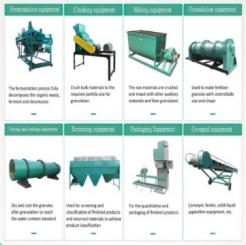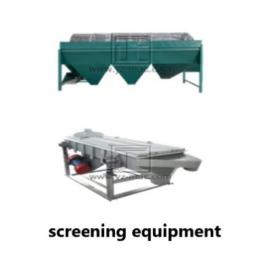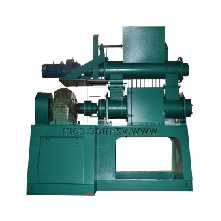Manure pellet machine
A manure pellet machine is a specialized equipment designed to convert animal manure into convenient and nutrient-rich pellets. By processing manure through a pelletizing process, this machine offers several benefits, including improved storage, transportation, and application of manure.
Advantages of a Manure Pellet Machine:
Nutrient-Rich Pellets: The pelletizing process transforms raw manure into compact and uniform pellets, preserving the valuable nutrients present in the manure. The resulting manure pellets contain a concentrated blend of essential nutrients, including nitrogen, phosphorus, and potassium, making them an excellent organic fertilizer for plants.
Reduced Odor and Moisture: Manure pellets have lower moisture content compared to raw manure, reducing the release of foul odors during storage and application. The pelletizing process also helps break down organic matter, further minimizing odor and making the pellets easier to handle and store.
Convenient Handling and Application: Manure pellets are easy to handle, transport, and apply to agricultural fields or garden beds. Their compact size and uniform shape allow for efficient spreading and precise application, reducing the risk of nutrient imbalance and optimizing plant uptake of nutrients.
Improved Storage and Transportation: Manure pellets occupy less space than raw manure, making storage and transportation more efficient. The reduced volume and enhanced durability of pellets facilitate long-distance transportation, enabling the utilization of manure resources across different regions.
Working Principle of a Manure Pellet Machine:
A manure pellet machine typically consists of a feeding system, a conditioning chamber, a pelletizing chamber, and a pellet discharge system. The machine processes raw manure through a series of steps, including grinding or shredding, mixing with a binder if necessary, and pelletizing under high pressure. The pelletizing process forms the manure into small, cylindrical pellets that are then cooled, dried, and discharged for packaging or application.
Applications of Manure Pellets:
Agricultural Fertilizer: Manure pellets serve as an effective organic fertilizer, providing essential nutrients for crop production. They can be applied to a wide range of crops, including vegetables, fruits, grains, and ornamental plants. The slow-release nature of the nutrients in manure pellets ensures a sustained and balanced nutrient supply for healthy plant growth.
Soil Improvement: Manure pellets enhance soil fertility and structure. When applied to soil, the organic matter in the pellets improves soil moisture retention, promotes beneficial microbial activity, and increases soil organic carbon content. This contributes to better soil structure, water holding capacity, and nutrient cycling, resulting in improved soil health and productivity.
Biogas Production: Manure pellets can be used as feedstock in anaerobic digesters to produce biogas. Biogas is a renewable energy source that can be used for heating, electricity generation, or as a vehicle fuel. The utilization of manure pellets in biogas production helps to reduce greenhouse gas emissions and promotes sustainable energy generation.
Environmental Management: By pelletizing manure, the storage, handling, and transportation of manure are improved, reducing the risk of nutrient runoff and water pollution. The controlled application of manure pellets helps minimize nutrient leaching into groundwater and mitigates the environmental impact associated with raw manure application.
A manure pellet machine offers an efficient and sustainable solution for converting animal manure into nutrient-rich pellets. With advantages such as nutrient concentration, reduced odor, convenient handling, and improved storage and transportation, manure pellets are highly valuable in agriculture and environmental management. Whether as an organic fertilizer, soil amendment, feedstock for biogas production, or for sustainable nutrient management, manure pellets contribute to sustainable agriculture practices and environmental stewardship.






